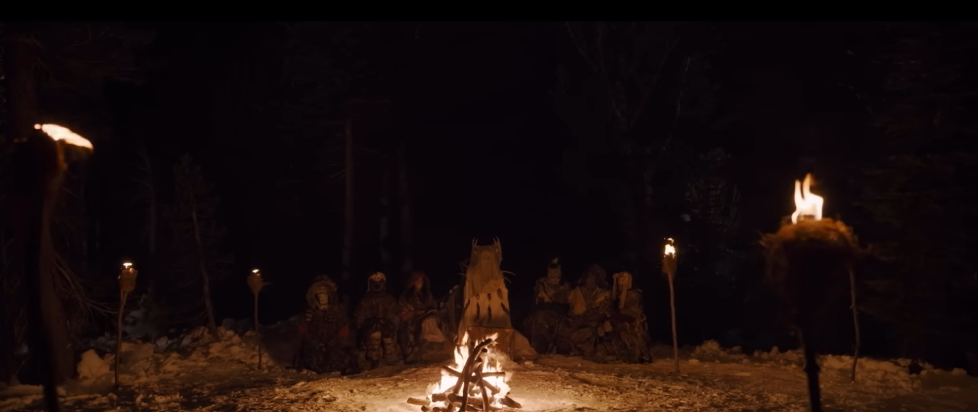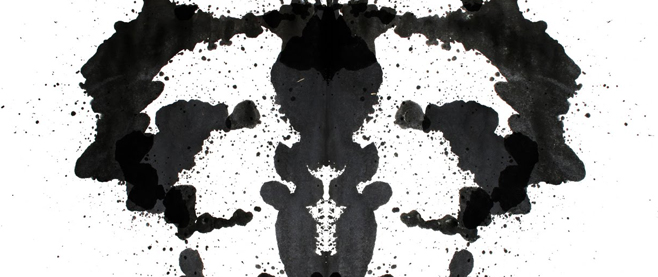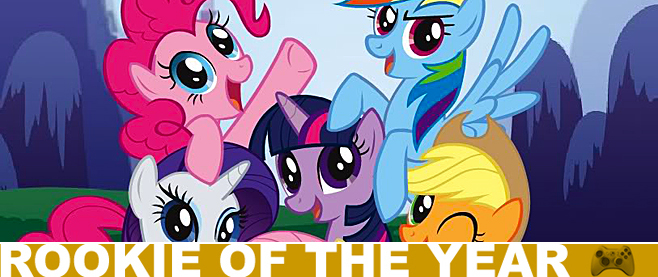
Yellowjackets and the Erotics of Eating your Friends
I’m on the bus home, wondering where to start when I write this, when suddenly I realize my stomach’s in knots. There’s that familiar gnawing feeling (I think you know the one), like something will eat me from the inside if I don’t feed it first.
I’m hungry.
It’s always hard to gather your thoughts when you haven’t eaten in a while, but let’s give it a go.
Hunger isn’t just raw carnal instinct. It’s a social beast, and a political one. It might be patriarchy that makes us hungry, when we starve ourselves into notions of womanhood. It might be capitalism that makes us hungry, when we can’t afford to eat.
Sometimes I’m not sure if I’m hungry because I need to eat or because I want to. We don’t always eat because we’re hungry: sometimes we eat for comfort, perhaps out of desperation or perhaps for the joy of it. But surely that’s just another kind of hunger: emotional rather than physical.
Enter hunger-as-metaphor here. What is it we need? What is it we want? How different are the two?
We often find hunger in horror (and horror in hunger). Our hunger might haunt us: if we don’t feed, it only grows. But maybe this hunger, the familiarity of it, can be a source of comfort: maybe we know who we are when we’re hungry, and we’re afraid of who we’d be if we weren’t.
Cannibalism, as taboo, is often relegated to horror. What we’re dealing with here is a very specific kind of hunger, for the flesh of another person. Why does this make us so afraid?
Cannibalism might unsettle our anthropocentric worldview. Why is it less moral to eat a human being than any other animal? It might disturb our idea of civilization (that fiction which separates us from the animals). From Heart of Darkness to Cannibal Holocaust, our culture abounds with stark examples of the racism inherent in constructing cannibalism as a barbaric act perpetuated by savages.
But let’s hone in on the desire of the cannibal: to eat another person. It becomes homoerotic very quickly if we think of it as the desire to devour someone like you.

Showtime’s Yellowjackets is bringing lesbian cannibals into the zeitgeist, and personally I couldn’t be happier. Friends who wanted me to watch it only had to say exactly that – “it’s got lesbians and cannibals in it” – and I was sold.
On their way to nationals, the plane carrying Wiskayok High School’s girls’ soccer team, the Yellowjackets, crashes in the Ontario wilderness. Removed from “civilization”, these girls become responsible for their own survival (the only adult they have with them certainly isn’t much help).
To be honest, this type of plot contrivance usually has me on guard. It has a tendency to perpetuate white supremacist narratives: what makes us human (superior) is our separation from nature; without this separation we are no better than animals (which are clearly inferior); left to our own devices the individual must prevail, because the rule of nature is survival of the fittest. Yawn.
I think Yellowjackets is different. Of course, before they become stranded in The Wilderness, these girls have been socialized according to capitalist norms. Capitalist individualism is patriarchal: for young women, it doesn’t just alienate us from nature, but from each other (and ourselves). We’re taught to hate each other, because we’re competition. And yet we often share the kind of bond that can only be understood through shared experiences of oppression. This is the love you have for someone like you, not simply because they are like you, but because you know their pain as if it were your own.
These girls might hate each other, but they love each other deeply. They will kill each other, but they can’t live without one another either.
Shauna Shipman, for one, loves and hates her best friend Jackie in equal measure. In the first few episodes I was on the lookout for lesbians, and Shauna really had me going there with all those sad, longing glances (I’ve still got my eye on her). Lea Anderson offers an in-depth take on the love/hate thing that Shauna and Jackie have going on in Season 1 (though you might glean from what I’m about to write that I view Jackie more sympathetically).

Jackie dies in a mundanely heart-wrenching sort of way. She and Shauna have a very familiar teenage girl kind of argument, an eruption of repressed desires and resentments (still mediated through heterosexist understandings), only Jackie doesn’t wake the next morning to kiss and make up (or even to stay angry and figure it out later). She stubbornly sleeps outside, and freezes to death with the first snow of winter.
So Shauna hangs out with Jackie’s frozen corpse for a while. One day Jackie’s ear falls off, and she pockets it conspiratorially, carrying Jackie with her. The Studio Killers might describe it like borrowing Jenny’s lipstick or stealing her stuff now and then (but, like, if Jenny was frozen solid).
“You’re hungry,” Jackie’s corpse tells her still-breathing friend. “Yeah, Mari’s making dinner,” Shauna snaps, holding Jackie’s face in her hand as she smears lipstick over her mouth. Jackie silences her with the words: “That’s not what you’re hungry for.” Eventually Shauna works up the strength to eat her ear; then the team eats her whole in a visual montage which toys with the image of cannibalism in dialogue with a bacchanal feast. Have the girls descended into savagery, or was the image of Western civilization always a cannibalistic one?
Shauna’s not just hungry for food, she’s hungry for Jackie. She doesn’t need Jackie (she can survive on what Mari’s making), but she does want her. Or maybe she does need Jackie, because survival isn’t enough. Not physically (Jackie’s flesh will nourish her more than their grim rations), not emotionally (she wishes her best friend was still with her), and not… well. Eating someone is sort of a sexual metaphor, isn’t it?
Shauna’s desire to eat Jackie, read through homoerotic terms as what she’s really hungry for, offers cannibalism up as a metaphor for relationships between teen girls. To want to eat you might be about hating you (wanting to destroy you), but it’s also about wanting to be you (wanting you to become a part of me), and about plain wanting you (wanting you inside me, wanting to devour you). These contradictory desires generated and then suppressed by capitalism and patriarchy are held all at once in the image of cannibalism.
Maybe cannibalism-as-sex isn’t so far-fetched, but I don’t think eating your friends is just about sex in Yellowjackets: I also think it’s about love.
The yellowjacket metaphor encourages us to think of teenage girls as homosocial, matriarchal creatures that are by nature social, but will starve each winter before the cycle repeats. Yellowjackets are wasps, by the way, for anyone (like me) who didn’t know that at first. Lea Anderson has argued that the survival of the unit (the Yellowjackets) can only be maintained through the sacrifice of some of its individual members. As a result the individual must prove themselves indispensable to the group in order to survive as part of the whole. For example, they need Misty’s medical expertise, Lottie’s spiritual guidance, and Natalie’s hunting skills: no one person is “the fittest” to survive on their own here, so capitalism’s central myth is shattered.
It’s true that as no one else in the group has these skills, these specific individuals are more useful to the group alive, but everyone is vital to the survival of the Yellowjackets in some way. Whether through carrying out tasks like fetching water or cleaning out the shit bucket, or by dying and being eaten.

Jackie is stubborn to the last. Unmoored from her role at the top of the social hierarchy back in her New Jersey high school, she never quite adjusts. She doesn’t want to be here, she doesn’t want to contribute, and when she stops eating it seems like she doesn’t want to live anymore. Jackie might not contribute to the group in life, but in death she gives of herself for the survival of her teammates in the most visceral way possible.
Lottie tells Shauna that Jackie “would have wanted this: if not for us, then for you”. And Lottie, who believes in giving thanks to the spirits of the animals she eats, certainly seems to see giving one’s body to be cannibalized as an act of love. It’s thinking of love as nourishment (physical if not emotional), like when your mom doesn’t know how to talk to you but knows how to make you a hearty meal. Maybe Jackie doesn’t know how to talk to Shauna, but she can feed her. And when Shauna beats Lottie within an inch of her life (and Lottie lets her), she insists that if she dies she wants to be eaten.
The Yellowjackets take this as tacit permission to eat someone, but they decide that Lottie is too important to them alive to sacrifice. She’s horrified by this: perhaps it feels like a rejection of her love; perhaps it’s because Lottie’s self-worth is not the same as the worth she gives to others; perhaps it’s about her moral stance on eating someone when they’re already dead as opposed to murdering them in order to eat them.
Where does this leave love? Is it only the cannibalized party who can give love (by giving nourishment)? Does it only count if you’re dead, but not murdered? What about consent? And what about the other way around?
The thing about your mom making you a hearty meal is that if you don’t eat it, it’s a painful rejection. Perhaps there is love in the receiving. I’m reminded of a news story from 2003, when someone advertised for a “young well-built man, who wanted to be eaten”. And, well, one such man did agree to be eaten (and to be fed and kissed before dying).
In Yellowjackets, cannibalism ultimately offers a grotesque, tragic image of relationships between young girls (as shaped by capitalism and patriarchy). It isn’t simply because of its violence that this image is so resonant, but because it comes to convey twisted expressions of love and desire (perhaps when you don’t know how else to express them, or you don’t even know what you’re trying to say). Without the right tools we might be doomed to eat each other out of love and out of hate.
For now, production on Yellowjackets takes a pause as WGA and SAG-AFTRA go on strike, and I’m more than happy to wait as long as it takes for the writers and actors to get a fair deal for their work. But when the time comes, perhaps after a fashion of the show’s striking workers fighting for a better industry, I’m excited to see if the surviving Yellowjackets might break the cycle. As adult women, they might discover what they couldn’t as teenagers: that loving other women doesn’t have to hurt so much.
———
Sara Khan (they/she) is a freelance writer and co-founder of Game Assist, a multimedia project exploring liberation and politics in gaming. Their work aims to center marginalized perspectives, and to explore how media shapes culture (and vice versa). Find them on Twitter here.





